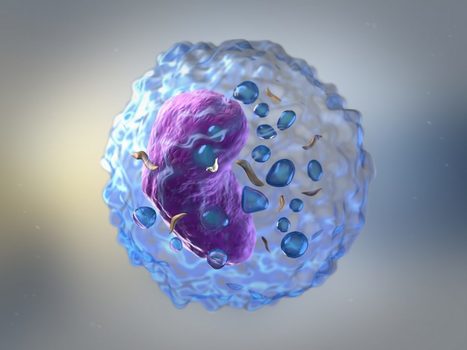Chimeric antigen receptors (CARs) and synthetic Notch (synNotch) receptors are engineered cell-surface receptors that sense a target antigen and respond by activating T cell receptor signaling or a customized gene program, respectively. Here, to expand the targeting capabilities of these receptors, we develop “universal” receptor systems for which receptor specificity can be directed post-translationally via covalent attachment of a co-administered antibody bearing a benzylguanine (BG) motif. A SNAPtag self-labeling enzyme is genetically fused to the receptor and reacts with BG-conjugated antibodies for covalent assembly, programming antigen recognition. We demonstrate that activation of SNAP-CAR and SNAP-synNotch receptors can be successfully targeted by clinically relevant BG-conjugated antibodies, including anti-tumor activity of SNAP-CAR T cells in vivo in a human tumor xenograft mouse model. Finally, we develop a mathematical model to better define the parameters affecting universal receptor signaling. SNAP receptors provide a powerful strategy to post-translationally reprogram the targeting specificity of engineered cells. Chimeric antigen receptors (CARs) and synthetic Notch (synNotch) receptors are promising platforms for cell-based immunotherapies. Here, the authors develop highly programmable versions of these receptors that can be universally targeted to antigens of interest through covalent enzyme chemistry.
Research and publish the best content.
Get Started for FREE
Sign up with Facebook Sign up with X
I don't have a Facebook or a X account
Already have an account: Login
 Your new post is loading... Your new post is loading...
 Your new post is loading... Your new post is loading...
|
|












Researchers have developed a universal receptor system that allows T cells to recognize any cell surface target, enabling highly customizable CAR T cell and other immunotherapies for treating cancer and other diseases. The new approach involves engineering T cells with receptors bearing a universal "SNAPtag" that fuses with antibodies targeting different proteins. By tweaking the type or dose of these antibodies, treatments could be tailored for optimal immune responses. The researchers showed that their SNAP approach works in two important receptors: CAR receptors, a synthetic T cell receptor that coordinates a suite of immune responses, and SynNotch, a synthetic receptor that can be programmed to activate just about any gene. In a mouse model of cancer, treatment with SNAP-CAR T cells shrunk tumors and greatly prolonged survival, an important proof-of-concept that sets the stage to test this approach in clinical trials in partnership with Coeptis Therapeutics, which has licensed the SNAP-CAR technology from Pitt. The discovery could extend into solid tumors and give more patients access to the game-changing results CAR T cell therapy has produced in certain blood cancers. With the addition of SNAP, the possibilities for customized therapies become almost endless.